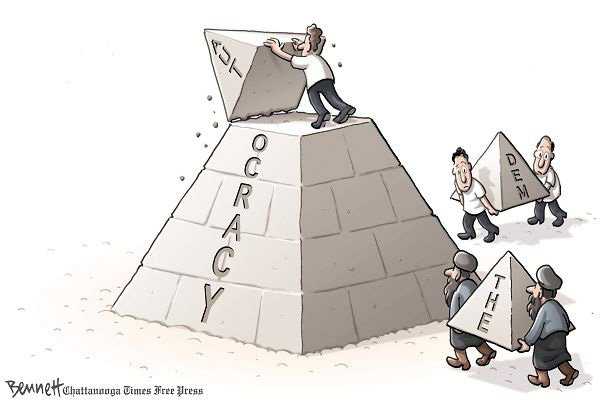Corporation receives 11,000 complaints and 50 MPs plan to back motion calling on BBC to change its mind over aid film
The Archbishop of Canterbury today added to criticism of the BBC over its refusal to broadcast a charity appeal for aid to Gaza.
He spoke as it emerged the BBC had received some 11,000 complaints and more than 50 MPs planned to back a parliamentary motion urging the corporation to reverse its decision not to broadcast tomorrow’s appeal by the Disasters Emergency Committee (DEC).
The early day motion to be tabled tomorrow by Labour’s Richard Burden has received the support of 51 MPs from across the Commons; ministers and some senior BBC staff have also called for the BBC to change its mind. The corporation today admitted it had received “approximately” 1,000 telephone complaints about the decision and a further 10,000 by email.
Meanwhile, adding his voice to the calls for a U-turn while speaking after a church service in Cambridge, the Right Rev Rowan Williams said: “My feeling is that the BBC should broadcast an appeal.”
But despite the increasing pressure, a BBC spokesman today said the situation remained unchanged.
Mark Thompson, the BBC director general, has been left isolated as ITV and Channel 4 agreed to air the plea for aid.
The BBC has decided that broadcasting the appeal might be seen as evidence of bias on a highly sensitive political issue.
The culture secretary, Andy Burnham, said it was right that broadcasters made their own decisions, adding that the BBC faced a difficult choice because of the way it is funded.
The communities secretary, Hazel Blears, said she hoped the BBC would “urgently review its decision”, and the Scottish first minister, Alex Salmond, said the corporation had made the “wrong decision”.
Yesterday, the Archbishop of York, the John Sentamu, accused the broadcaster of “taking sides” and said: “This is not a row about impartiality, but rather about humanity.
“This situation is akin to that of British military hospitals who treat prisoners of war as a result of their duty under the Geneva convention,” he added.
“They do so because they identify need rather than cause. This is not an appeal by Hamas asking for arms, but by the Disasters Emergency Committee asking for relief.
“By declining their request, the BBC has already taken sides and forsaken impartiality.”
Thompson received backing from the BBC Trust’s chairman, Sir Michael Lyons. He said he was “concerned” about the tone of some politicians’ comments on the issue, which he said came close to “undue interference” in the BBC’s editorial independence.
The BBC’s unrepentant stance has stirred up rebellion in the ranks of it own reporters and editors. One senior BBC news presenter told the Observer: “I’ve been talking to colleagues, and everyone here is absolutely seething about this.
“The notion that the decision to ban the appeal will seem impartial to the public at large is quite absurd.
“Most of us feel that the BBC’s defence of its position is pathetic, and there’s a feeling of real anger, made worse by the fact that, contractually, we are unable to speak out.”
Jon Snow, the journalist who presents Channel 4 news, said the BBC should have been prepared to accept the judgment of the aid experts of the DEC.
“It is a ludicrous decision,” he said. “That is what public service broadcasting is for. I think it was a decision founded on complete ignorance and I am absolutely amazed they have stuck to it.”
Snow said he suspected a BBC bureaucrat had “panicked” and urged Thompson to put the situation right.
Martin Bell, the former BBC foreign correspondent, said the corporation should admit it had made a mistake and claimed “a culture of timidity had crept” in.
“I am completely appalled,” he said. “It is a grave humanitarian crisis and the people who are suffering are children. They have been caught out on this question of balance.”
But Greg Dyke, Thompson’s predecessor as director general, said the issue had put the BBC in a “no win situation”.
“Outside of Iraq, the single biggest issue that caused complaints was the coverage of Israel,” he added. “I can understand why the BBC has taken this decision, because on a subject as sensitive as the Middle East it is absolutely essential that the audience cannot see any evidence at all of a bias.”
The BBC also faces demands for an explanation from within the Commons international development select committee.
Andrew Mitchell, the shadow international development secretary, said: “We believe that they should allow the broadcast to proceed so that the British public, who have proved themselves so generous during recent emergencies in the Congo and Burma, can make their own judgment on the validity of the appeal.”
The satellite broadcaster Sky said it was “considering” broadcasting the appeal.
A BBC spokesman said: “We do accept that people are strongly guided in their view on this by the humanitarian emergency.
“We are highlighting the situation in Gaza in every news bulletin, and that is one of the reasons the issue is so high on the agenda.”
Guardian



